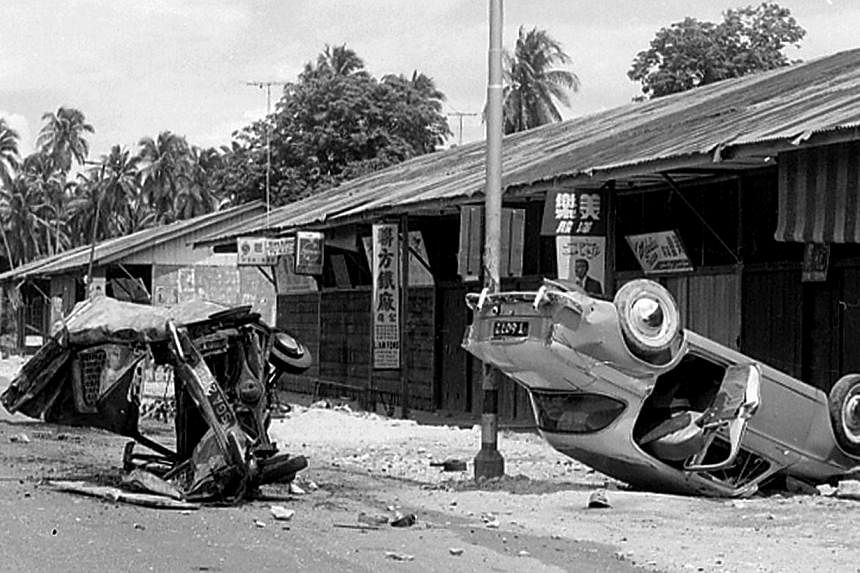DEC 14, 1965
RACIAL POLITICS
In the first Parliament sitting after Singapore became an independent country, then Prime Minister Lee Kuan Yew spoke to the House, denouncing the opposition Barisan Sosialis and exposing their communist links. He discussed racial politics in Malaysia and how it would impact Singapore. This speech set the tone for the country's multiracial policies in the decades ahead.
"SIR, we are nearly two million people - 1.9 million - in an island of 224 square miles with a few adjacent islands.
The statistics do not tell the world the factor that really decides performance, the quality of each individual digit, the intensity of the effort that the digits are capable of, and the efficacy of the framework within which they can be marshalled and organised for high performance.
For us, survival has always been hazardous. We sought to make it less so by seeking the larger framework of Malaysia, but it was not to be.
We are on our own... not helpless, but nevertheless in the centre of an extremely tumultuous arena of conflict.
Our survival depends upon our capacity first to discern where the dangers are for us as a distinct and separate community in South-east Asia; and, second, our ability to convince the bigger powers interested in this region that it is in their interests to ensure our separate survival, and in the end, whatever happens, to ensure that we have got enough will and capacity to see that no policies, no solutions, are attempted which will destroy our right to be ourselves in this corner of South-east Asia.
Whilst we are unable to say, having gone through so many changes in a matter of two years, what will happen in the next two years, I think we can safely predict that in two decades, either there is a tolerant, multiracial society comprising us in this region, or this will be an area of constant strife, very much like what the Balkan States were before and after the First World War.
We are here in South-east Asia for better or for worse, and we are here to stay.
Our policies are designed to ensure that we stay peacefully in South-east Asia in accord and amity with our neighbours, but with a right to decide how we order our own lives in our own home.
Every action, every policy, must be decided by this yardstick.
Any policy which endangers our long-term interests as a separate and distinct community in this region must be eschewed.
Any act, any programme, any decision which will help to secure a more enduring future for ourselves and our progeny in this region must be pursued, whatever the sacrifice.
We have not sought this particular formula of survival, but it is now the basis on which we move forward; and with independence comes an independence of action in policy and planning which can help establish that enduring basis for ourselves in South-east Asia.
It is with confidence - a confidence born out of the past performance of our people - that we feel we can overcome problems of economic development, problems of unemployment.
But in the other wider fields of inter-racial harmony and tolerance, there are so many other factors that even though we are independent, we have not got an exclusive prerogative to decide what is to be that relationship even between our own citizens.
For as I have said, Mr Speaker, Sir, there are other factors, factors outside our dispensation, which can affect our own position.
But whatever the result will be, we would like those who come after us to believe, and to have grounds for believing, that we did not leave a stone unturned in seeking a just and enduring future for all the people who made up the society - those who were here when the British came, those who came when the British were in control, and those who are willy-nilly now rooted in this corner of South-east Asia and whose destinies are interwoven - whatever we would have wished it to be."

